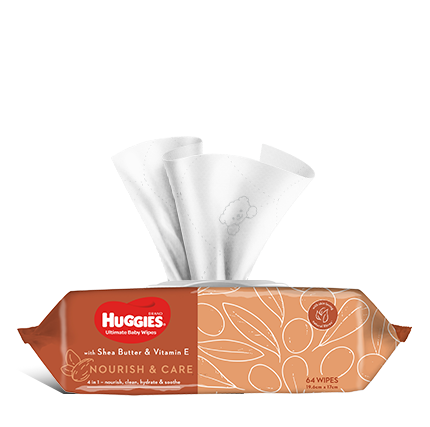Foods and breastmilk
Many new mothers are advised that eating oranges, spicy food, onions and cabbage may upset their infant’s tummy and so should be avoided, but research suggests that for most babies these foods are not a problem. However, there is increasing research into the effect that common allergy-causing foods such as wheat, eggs, nuts, milk and dairy products may have on infants. Additionally, studies show that nursing mothers who consume high amounts of fish (such as salmon and mackerel) in their diet may pass on the health-giving benefits from the omega-3 fatty acids to their baby – this can be particularly helpful in families with a history of asthma (ABA, 2004). While restricting a mother’s diet to assist a baby experiencing an allergy doesn’t have widespread support, research is continuing into the beneficial effect of maternal diet on preventing infant allergy (Palmer, 2004) over treating it.
Maternal dietary influences
Many parts of breastmilk are consistent across feeds and over time. There are some that can vary with your diet, for example the type of fat in your diet resembles the type of fat in your breastmilk. Keep in mind that, even with such fluctuations, the total calories remain consistent. Supplements can alter some nutrient levels in breastmilk, for example vitamin B2 and vitamin C show a fast dose-related response to supplementation or dietary changes, while iron and calcium don’t. Lactose found in breastmilk is largely independent of your diet.
The protein found in breastmilk, mainly casein, doesn’t appear to be influenced by the maternal diet, even in the case where the mother is severely undernourished. Cows’ milk is not suitable for babies for numerous reasons including its composition of proteins and it lacks of taurine (an important amino acid for brain and eye function).
Normal variations in dietary habits by nursing mothers don’t appear to significantly influence the volume or content of her milk. Mothers with poor nutrition can produce milk with lower energy, protein and fat; however, this is strongly influenced by the severity of the deficiencies and the duration and more likely in extreme cases.
Studies in countries where nutrition is compromised have shown that the milk of nursing mothers remains sufficient to meet the needs of their babies assuming they feed on demand.
Are there foods to avoid?
Overall, not really. You will hear from different people that a certain food should be avoided but often this is based on cultural beliefs and practices rather than scientific information. As with any diet it is ideal to avoid junk foods, as they provide excessive calories with little nutrition. Try to avoid additives in your food where practical, instead opt for clean whole food. Ideally what you want is more bang for your buck so to speak: foods where the available space is packed with goodness.
Fish and breastfeeding
While the critical time for development is during the foetal stages, the Food Standards Australia New Zealand (FSANZ) recommended breastfeeding women generally don’t require special recommendations as the transfer of mercury is very low through breastmilk. Still, for safety, women can continue to follow the same guidelines as pregnant women in relation to fish intake.
What about chocolate?
I simply couldn’t ignore this food, it really can be a ‘feel good’ food at times, and at times a little bit of chocolate during one of those long, quiet feeds can be just the trick, but, yes, all things in balance. A little bit of chocolate won’t hurt either of you, just keep it to a treat and enjoy it. If you really feel bad about it, opt for something such as organic dark chocolate-covered goji berries – at least you can argue that you are getting something healthy this way!
Allergies and the breastfed infant
We now know that breastfeeding offers some protection against the formation of allergies. Breastfed babies are less likely to experience an allergy. For example, breastfeeding can be particularly helpful in infants whose family has a history of allergies, such as those with asthma, sinusitis, wheezing and eczema (NHMRC, 2003). Research suggests that the antibodies in breastmilk (specifically IgA) may bind to food proteins to form a complex that reduces the likelihood of these proteins crossing into baby’s blood (Palmer et al., 2004).
While altering your diet (for example, reducing the intake of common allergens such as eggs, nuts, dairy and gluten or expressing off the foremilk, which is higher in lactose) is not generally well supported by research, you will hear of many practitioners recommending such changes and that they have been successful. Who’s to say that research just hasn’t caught up to anecdotal evidence? We now know that parts of egg protein can pass whole into breastmilk, so who knows what other food compounds may pass that we are unaware of as yet. Ultimately, do what works best for you and your baby, as long as you have all the nutritional bases covered.
Keeping the balance when you have to avoid food
Any food or food group you remove from an otherwise healthy balanced diet should be replaced. Any dietary amendment must be undertaken with careful consideration, in particular changes that involve a reduction in variety and food groups as this can mean reduced nutrient intake, insufficient calorie intake and the development of other food sensitivities from over-exposure to a limited range of foods.
Figure 1 provides a brief example of some of the vitamins and minerals that may be an issue if a specific allergy-forming food is removed from the diet. Keep in mind this list doesn’t include essential amino acids and essential fatty acids (EFAs) as well as other nutritive factors.
| Figure 1 Vitamins and minerals that are provided by different food allergens | |
| Allergen | Vitamins and minerals |
| Milk | Vitamin A, D, B2, B5, B12, calcium and phosphorus |
| Egg | Vitamin B12, B6, B2, B5, biotin and selenium |
| Soy | Thiamin, B2, B6, B9, calcium, phosphorus, magnesium, iron, and zinc |
| Wheat | Thiamin, B2, B3, B9 (if fortified) and iron |
Alternative foods that are either fortified or rich in specific nutrients may need to be sourced. For example, using calcium-fortified alternative ‘milk’ drinks such as rice, soy or oat may be an option.
What about a cuppa?
Caffeine is quickly absorbed and reaches a peak concentration in the body within an hour. While the actual amount that you consume – and which then turns up in your breastmilk – is variable, it is estimated that 0.06% to 1.5% of the amount of caffeine you drink crosses into breastmilk. Caffeine can also sit in the body for long periods; this is particularly so for newborns.
| Figure 2 Caffeine content of drinks | |||
| Caffeine content of selected drinks (mg) | |||
| Drip method coffee | 110-150mg/cup | Percolated coffee | 65-120mg/cup |
| Instant coffee | 40-60mg/cup | Decaffeinated coffee | 2-5mg/cup |
| Strong black tea | 40-60mg/cup | Weak black tea | 20-30mg/cup |
| Cola drinks | 40-50mg/cup | Cocoa, 2 teaspoons | 12mg |
| Herbal tea | none | ||
| Source: Centre for Health Promotion and Research 1995 | |||
Caffeine has an affinity with the fatty, creamy layer of breastmilk and consequently tends to be most concentrated two hours after it is consumed. It appears that caffeine can reduce milk supply and may be implicated in recurrent mastitis (ABA, 2004). Some findings also show that mothers who drink caffeinated beverages have lower iron levels in their breastmilk than those who don’t have caffeine; this may explain the increased prevalence of iron deficiency anaemia in countries where a lot of coffee is drunk. Babies of mothers consuming large amounts of caffeine can show signs of agitation, jitteriness, constipation and general unsettledness.
But don’t panic: you need not deny yourself small pleasures in life such as the occasional cup of tea or coffee. However, it is best to keep your intake to one or two cups once in a while, ideally after feeding. The American Academy of Paediatrics suggests that nursing mothers consume no more than three cups of coffee a day (equivalent to less than 300mg/day); they also warn that smoking increases the effect of caffeine in the body, so mothers who smoke should reduce this amount even further.
Alcohol and breastfeeding?
The amount of alcohol that passes to breastmilk is roughly equivalent to the mother’s blood alcohol level. It appears that acetaldehyde (the toxic metabolite from alcohol) may also pass into breastmilk. Studies show that within 30 minutes just one standard drink alters breastmilk and can have a mildly sedative effect on baby as well as reducing mother’s letdown reflex. Alcohol may interfere with the release of oxytocin in many lactating women. Also, a sleepy infant is less likely to be able to suck and, of course, drowsiness in babies is not ideal with concerns about SIDS.
Research suggests that motor development is also impaired in infants exposed to alcohol through breastmilk and with the reduced ability for infants, particularly very young infants, to detoxify alcohol, the ramifications for development are potentially huge.
Other concerns with alcohol consumption include its possible link with mother’s inability to cope and potential depression – alcohol has a depressive effect on our systems. Being nutritionally empty, alcohol can reduce appetite and replace food; combining these effects we begin to see a potentially negative spiralling effect on the mother-baby relationship.
While breastfeeding it is best to avoid alcohol intake (particularly in the first three months) and, at most, lactating mothers should consume no more than two standard drinks in a day. However, if mother wishes to have a small drink or requires a drink for whatever reason (personal, religious or other), some strategies that can be provided to her to reduce the effects include:
- Choosing a low-alcohol drink.
- Eating before drinking.
- Avoiding breastfeeding for two to three hours after a drink.
- Expressing and storing a feed for baby instead of breastfeeding.
- Diluting the alcohol with juice, water or ice.
Guidelines (endorsed by the Ministerial Council for Drug Strategy) suggest if you choose to drink you should have no more than seven standard drinks a week and no more than two a day. But some health groups believe that this is too lax, and may send the wrong message. The New Zealand Government updated its policy recently and now recommends a zero alcohol intake for breastfeeding mothers.
Should I take a multivitamin supplement?
It’s always advisable to seek professional advice if you’re considering taking a supplement during pregnancy and breastfeeding. In some cases, vitamins and minerals can mask deficiencies or even interact with medications.
Your healthcare professional might recommend a multivitamin supplement if you fit into the following categories:
- Vegetarians.
- Teenagers who may have an inadequate food intake.
- Women with an inadequate diet or are under stress or those who smoke or are exposed to other chemicals either by trade or geography.
- Substance misusers (of drugs, tobacco and alcohol).
- Obese women who are restricting their energy intake to prevent weight gains.
This information has been provided by Leanne Cooper from Cadence Institute of Nutrition & Health Coaching. Leanne is a qualified nutritionist and mother of two very active boys.
Last Published* May, 2024
*Please note that the published date may not be the same as the date that the content was created and that information above may have changed since.




















